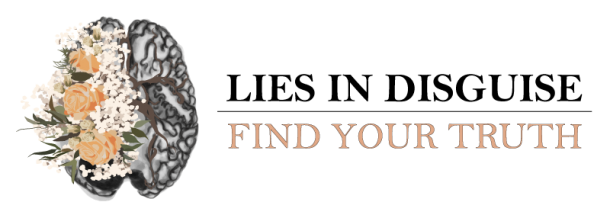With BPD it feels as if my emotions are happening to me, rather than me simply feeling them and then choosing how to respond. Emotions seem so big, overwhelming and intense, that they swallow me up – there seems to be no space between emotion and reaction. Many times I have heard that individuals with BPD feel emotions much more than the average person. People with Borderline Personality Disorder are so super-sensitive it can be likened to walking around with 3rd degree burns and having emotional hemophilia.
I know for myself, that I am very much a super-feeler in the sense that I do feel emotions deeply, that of my own and others, and my empathy is so strong that I could be brought to tears and pain over someone else’s troubles. That said there are many super-feelers and deep empath’s in the world that can and do manage their emotions effectively. The issue I personally find is that, from my lifetime perception of chronic invalidation, I never properly learned how to first identify and then express my emotions, thus could not regulate them in healthy ways. I have become an avoider of emotions, therefore the power they hold over me has become much stronger. It is this I deem responsible for my higher than normal emotional reactivity and the reason I feel so strongly, is BECAUSE I try so hard NOT to feel at all.
It is a deadly combination to be a super-feeler who refuses to feel her own emotions. Not only had I learned to suppress and avoid emotion, I had developed a host of maladaptive coping strategies and defence mechanisms to help me escape them. So that raises the question, do I as a Borderline, actually feel emotions more than others, or is it because I’ve suppressed them that they seem stronger than others? Whatever the case, I have learned that by allowing myself to feel them, reduces both their intensity and the strength of their power over me. The problem is, that unlike a “normal” person who naturally and automatically feels and addresses their emotions, I do not have this as an automatic system in place (yet). I have to remind myself to feel, to schedule the time to feel.
It is only when I’ve been avoiding my feelings for a time, causing my anxiety to begin rattling through my body, that I come to realize I have been avoiding feeling. When my emotional stress response is triggered in the brain, the physiology within – my programming of flight, fight, or freeze, or (in other words) avoid, submit or defend, forces me to comply with what my pattern has always been, avoid. Since it’s human nature to choose the path of least resistance and our brains are designed to seek instant gratification, my brain goes to the path it has always taken to escape the distressing emotions. This would seem as if I have no choice in the matter, no way to chose my response because my brain is not wired to respond correctly, right? For a time, this was true. – How can you change a problem that you are not even aware of in the first place?
Becoming a self-aware individual has not been a gift I possessed for most of my life. Developing self awareness has been (and still is) a skill I practice regularly. I usually notice either first the anxiety symptoms – the physical sensations in my body, i.e., back pain, or the behaviours I am doing to cope with the anxiety – i.e., clenching jaw, skin picking. Once I pause and first notice the cue’s, I then have an internal monologue that sounds something like this: “Ok, I see that I am doing ______”, (identify behaviour), then “I notice my body feels ______” (Identify physical sensations). Then I examine: “I have been thinking/saying to myself ________” (Identify thoughts). Then I label: “what emotion am I feeling/suppressing? _____. Then I attempt to resolve whether these thoughts are self-regulating or dis-regulating and if they are contributing to the emotion/reaction chain of events. Most of the time, my thoughts are like a faint tape playing in the background – thoughts of a very dis-regulating nature, a negative theme of criticism, judgments, self-doubt, worry and fear. These creates distressing emotions which triggers my stress response, and then in turn the behaviour’s appear.
Once I have discovered the thought and nature of them and the causation of this physiological chain of events, to lessen and relieve my distress, I examine whether or not the thoughts are true. Usually they’re not, yet even if the thought is true (for example, if I’m feeling legitimate guilt or remorse over something I’ve done), the question becomes: can I change my perception of it so that, it doesn’t become debilitating? In almost every situation I can. Sometimes relief is not immediate, yet it can get me onto the right path – lowering the intensity of the emotion whilst increasing my self-awareness.
I know I have a tendency to intellectualize ( focusing on facts/information? which removes the emotional part of this process. So, if the feeling is something I cannot rationalize myself out of, I have to embrace the emotion fully. Like a guest in my home, I invite it in, show hospitality by sitting with it for a time, and when it is ready to leave I say “see you next time.”.
Warmly,
Oriana xo
Keep healing, keep growing, keep finding your truth









Recent Comments